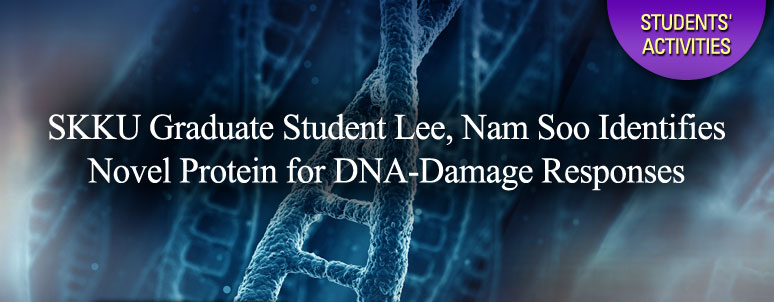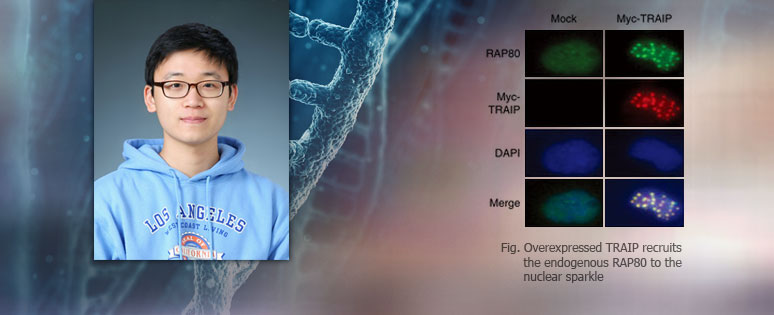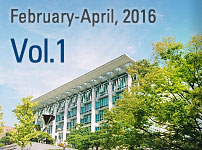SUNGKYUNKWAN UNIVERSITY (SKKU), SEOUL, KOREA


An SKKU graduate student named Lee, Nam Soo from the Department of Biological Science published his research paper in the international SCI journal 'Nature Communications' on January 19, 2016. His academic advisor is Professor Kim, Hong Tae at the Department of Biological Science, IBS Center for Neuroscience Imaging Research.
The title of the paper is 'TRAIP/RNF206 Is Required for Recruitment of RAP80 to Sites of DNA Damage'. By identifying TRAIP/RNF206 as a novel RAP80-interacting protein, the paper revealed the role of TRAIP protein in the recruitment of DNA lesions and the process of recruitment of DNA.
The study showed that TRAIP interacts with the zinc finger domain of the C-terminal region of RAP80 and transfers RAP80 to DNA-damage sites. RAP80 is known to take the RAP80?BRCA1 complex to the sites of DNA lesions according to earlier studies. The study confirms the damage signaling process 'RNF20/40-TRAIP-RAP80' revealing that the RNF20?RNF40 complex takes the TRAIP to the sites of DNA lesions.
Nam Soo Lee, a lead author of the study said, "Through this research, we were able to investigate the process of acting on the lesion site of the DNA. On the basis of this study, and by understanding more of the drug target, I want to contribute to the advancement of health science through the development of therapeutic agents for diseases associated with DNA damage response."
Find more information at:
http://www.nature.com/ncomms/2016/160119/ncomms10463/full/ncomms10463.html





















